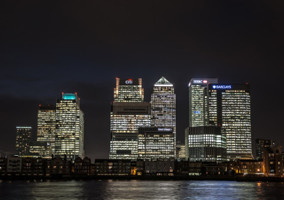It has been a typically patchy British summer, with markets following suit. One day’s promising rays of economic data are quickly shrouded by news of a spike of COVID somewhere. Then something else encouraging pops through the cover, only to be closely trailed by more shaded worry. And the dance continues, like clouds chasing the sun.
For all the whirlwinds and dislocations caused by the pandemic, stock markets surged in August, before some profit taking cast a bit of a cloud in early September. In another sign of consumer resilience, UK housing has also held up well enough, with interest in gardens spiking (as you would expect following a nationwide lockdown). Lending data released this month showed mortgage approvals rocketed back, helped by the stamp duty holiday. People are warming up the plastic again as well, with consumer credit increasing £1.2bn after four months of paying down debts. The Chancellor’s inspired Eat Out to Help Out scheme no doubt helped to drive this spending. Companies’ borrowing has dropped off too, with just £4bn of new loans taken out compared with the huge £31bn of loans in March.
As the leaves start to change colour, we will likely experience the next difficult phase of the pandemic. We keep hearing that the UK’s furlough scheme will end before the leaves drop, yet don’t be surprised if the scheme sticks around for many more moons. The same goes for the ban on rental evictions. The cost of furlough is extraordinary, so you can understand Chancellor Rishi Sunak’s eagerness to shut it down. Yet the human cost of double-digit unemployment and families thrown onto the streets in winter because they can’t make rent would be extraordinarily high too. And prime ministers tend to feel political costs more keenly than pounds and pence. Boris Johnson may win this fight, leaving furlough in place till after Christmas at least.
The financial cost doesn’t go away though. Now, we’re broadly comfortable with the UK’s higher debt burden and greater spending. Governments’ finances are not the same as those of a business or a household, however much the comparisons may be made. And offsetting a huge slump in the economy with government spending is a better option than letting a nation fall into a deflationary spiral.
Eyes on the long term
We are living through a great time of flux. And it’s likely to be this way for some time. It’s best not to get too excited about short-term fluctuations in markets, economic measures or news stories. Instead, you need to try keep an eye out for trends and indications that things have changed direction. That’s everything from company earnings to the recovery of nations and the fight against COVID. At the moment, governments are still supporting people and businesses as they try to get a footing in the post-pandemic world. They are able to borrow to keep people housed and fed and to encourage businesses to weather the storm rather than slash spending and send economies into freefall.
One particularly heartening trend we have noticed is the number of companies that have repaid furlough money taken from the government during the depths of the crisis. After posting strong profits, several companies have returned unneeded grants to the exchequer with thanks. Businesses are sometimes characterised as rapacious and single-minded in the pursuit of profit, yet this shows that honour still has a place at the boardroom table. The rise of a more responsible capitalism has no doubt helped engineer this compulsion to do the right thing rather than pocket a windfall at the expense of the people and their government.
Andrew Pitt is head of charities – London, Rathbones
Related articles












